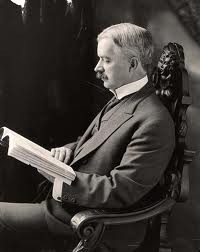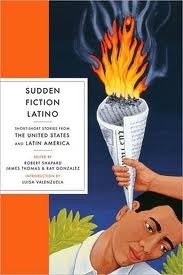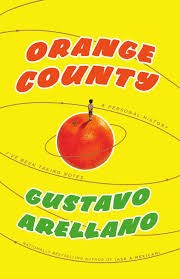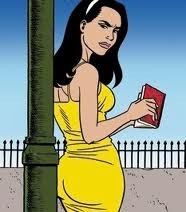
Is the glass half full or half empty? This among other provocative inanities is a question meant to point us in the direction of some kind of weak contentedness and dumb finality, an assessment of argument by way of attitude ad hominem-style and, yes, offer a real discourse-stopper to boot. Being able to consider two contradictory ideas at once, nicknamed “negative capability,” is an exercise of both intellectual vigor and, yes, freedom to think. Now let's turn that glass into a burrito or, as is happening over at the brand-new ad hoc Facebook page “Cultivating Invisibility: Chipotle's Missing Mexicans,” the brown bag in which arrives the meal served at Chipotle's restaurant, the wildly successful if culinarily boring dining joint which has stirred that half-full and half-empty glass by way of somehow, inexplicably, not include Mexican or Chicano or Mexican-American or all or any of 'em (see what I did there, friends and amigos?) writers, not one, despite the place being named Chipotle's Mexican Grill, almost if not quite producing actual Mexican cuisine, two out of three words in its name being, well, pretty darn Mexican.
]

To review, the Chipotle's marketing team took up writer Jonathan Safron Foer on his nifty idea of ostensibly promoting writers, writing, thinking, and literacy by printing excerpts of work by, among others, George Saunders, Sarah Silverman, Toni Morrison on its brown bags and cups in a campaign called “Cultivating Thought.” OC writer and teacher Lisa Alvarez and her crew of Angry Literary Mexicans responded with satire and funny, creativity and gentle political criticism, mostly about the lack of any Mexican-American authors, thinkers, writers, like that. Go figure. (Again, it's a Mexican restaurant!) Of course Alvarez and her online allies (artist J. Michael Walker, novelist Alex Espinoza and “thought leader” Kyle Behen – and, of course, the Mexican who is happy to be asked, Gustavo Arellano, just to name a few) are right, but, alas, they are about so many, too many things. There is actually probably a lot more wrong here, and part of it is what's too easy, too right, too obvious, as dumb as is the halfsies equation, with which you are probably running out of patience. Time for a refill.

Mr. Bib is eager to cultivate some political analysis, no surprise there. First: Yes, and sure, it is not a bad thing and maybe even a good thing that a corporate dining establishment now features excerpts from work by authors we admire. Second: Dumb of them not to at the very least include a voice or perspective or life story of a brown person who writes. Dozens of names have been helpfully recommended over at Cultivating Invisibility, their Facebook page quite busy in the last day or so. Right on. And, if you want my own easy pick, see last weekend's mini-homage to poet, essayist and YA legend Gary Soto, which includes my nomination of him for California poet laureate.
But the whole deal, of a fast food place printing stories, essays, jokes on its bags? Again: Okay, why not, maybe, who knows and yet, finally, so what. It's nothing. It's advertising. P.R. Or maybe it's something, if not all that much. Or maybe it represents some effort at goodwill to go along with the publicity or the advertising gimmick, mostly benign, that will please customers, or maybe Foer is a clever hustler and self-promoter? Good for him! But what is it about the role at all of a fast food “casual dining” place in provoking thought, discourse, reading that so irritates? Well, everything. First, not quite sure what Foer meant in his pitch to Chipotle's CEO Steve Ells with the notion that Ells would be giving his customers “a service.” That's where this gets the Bibliofella a-cultivatin' his own thoughts. Indeed, Chipotle's could provide all kinds of public services, from distributing condoms to offering voter registration to asking guests to sit down and write a letter to their elected officials about immigration reform, election reform, war, you name it. Second, Foer later argues that, a “lot of those people don't have access to libraries, or bookstores” and reflects that “Something felt very democratic and good about this.” Really?

Democratic? Yup. And there's the true horror of the whole silly effort. Foer is probably a good guy, but we are meant to believe that this is his idea of democratic. He needs to get out more. And, really, people who don't have access to books and libraries in our brave republic? Really, J? If these people exist, then who thinks that sending them to a privately owned restaurant is the answer and not, say, building and stocking and funding more public libraries and hiring librarians and, sure, asking Mr. Chipotle to invest in a few new bookstores?
Friends, there is a lot of this kind of phony political thinking, non-thinking around, here where we are asked to imagine that a corporate for-profit fast food chain — of all places! — is just the grooviest venue possible for promotion of the arts, even as the inventor of the idea (again not a “bad” one in itself) points unwittingly to just how silly is the premise. Hard to know why Foer imagines literacy or the arts is a “service,” (really, a bi-product of the commodity sold here) or to fathom just how little it takes for him to be happy and democratic and good-feeling.
Also hard to imagine that this service could or could not remind me people of, presumably, their shocking lack of access to public libraries (not sure about that, as almost every city and town in the US still has one, despite Reagan and Prop 13 and the privatizers and anti-tax kooks) and bookstores but, then, of course, he's full of frijoles there, too.
[

Two unreal-life scenarios, one more ridiculous than the other. Customer 1: “Dig this excerpt. I'd really like to read the whole book!” Customer 2: “Too bad, buddy, we don't have a public library in this town, or a bookstore either, so thanks to Chipotle's your dreams of literacy and democracy are only, well, further frustrated.” OR Customer 1: “Dig this excerpt. I'd really like to read the whole book!” Customer 2: “Okay, let's drive to the local public library or visit our favorite indie bookstore right after lunch because now that we've enjoyed our meal and learned about reading and books and literature while enjoying only average burritos we are eager to sit down and read Sula by Toni Morrison.”

If indeed you wanted to promote libraries and bookstores and reading, how would you actually do it? Well, Mr. Ells, you'd provide, give away or even sell actual books, you'd set up a little kiosk where actual books could be purchased, maybe even written by Foer or a Mexican-American writer and give away a free condom and a voter registration form and a list of local elected officials. But, then, that would perhaps be a different place entirely, with actual imagination and where, if the food were better, I would be quite pleased to eat.
No, the sketchy premise of the campaign, a cousin of the insidious false equivalency routine and close kin to fatalism and not wanting to hurt anybody's feelings is that it is exactly in the hollow hyper-commodity culture and the corporate world where most quality book stores and all libraries do not, cannot exist. The real discussion, which should sit there in the corner of any real public intellectual's mind like an 800-pound pachyderm, so close to the forty years of tearing down public institutions and funding for them, the co-opting of every aspect of civic and personal and public life by the sellers of experiences real and virtual is impossible to even begin when you accept the dumb justification of entre by commerce and commercial interests into absolutely everything.
It's not new. Remember when Tums, an antacid, promoted itself as high in calcium cuz, yes, if you wanted to take a supplement to prevent osteoporosis, it would be just exactly when you had a tummy ache? Or when we had to hear over and over how great billions spent on manned space flights brought us personal calculators and Tang, cuz you couldn't just develop those items at home on your own, private industry, with your own money and not

ours? Or, just a couple of days ago, I kid you not, when an academic researcher and apologist for the computer/video games on KCRW's “To the Point,” noting the lack of ostensibly desirable aggressive behavior of men in business, offered that if we wanted more women to act like that, to succeed at that, they should, yes, play more video games. And, yes, because you've heard it yourself, I will only briefly, reluctantly reference the terrific developments in prosthetic limbs inspired by, yes, two simultaneous and illegal wars.
Big conclusion: The real promise and premise of corporate consumer culture is more instead of real. It seeks, and mostly succeeds, at compromising, infiltrating, co-opting every part of our bodies, senses, conversations. Even when benign, it is still duplicitous. It's bad enough to have to teach people to say NO! to its obvious incursions into what's left of our democracy, as reminding them not to shop at Wal-Mart, and to support public education and labor unions. Or maybe it's good enough. Happy to, indeed and you're welcome. And happy, this morning, to remind us all how empty and worse than nothing and nothingness is the reliance on the wealthy to set the expectations, however low, of participation, art, discourse. Though I don't at all mind the provocation, not one bit!
Andrew Tonkovich hosts the Wednesday night literary arts program Bibliocracy Radio on KPFK 90.7 FM in Southern California, a listerner-sponsored anti-corporate, alternative community station.

